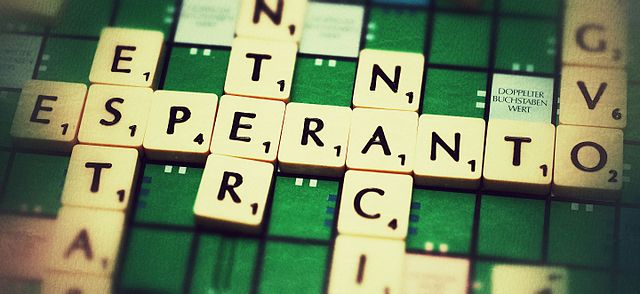Esperanto Might Be the Hope of the Future
With so many languages in the world (6,909 to be exact), wouldn’t it be great if we could speak one language and all understand each other? Aside from the economic problems translators and interpreters would run into, wouldn’t that be an amazing dream? But is it just a dream or could Esperanto, an invented language whose goal is just that, be the answer? Read on to catch a better glimpse of how Esperanto was created and what it could do for communication around the world.

Photo via Wikimedia
Explore our Esperanto courses with qualified native speakers in your city or online!
Turn Back the Clocks
The language was conceived in 1887 by a man the name of Dr L. L. Zamenhof through years of tireless work. The idea was for Esperanto to be a secondary language for people of different nationalities to converse through while simultaneously keeping one’s individual cultural quirks. Esperanto is one of the most functional languages in existence and has many basic advantages which has kept it from falling into obscurity.
Why?
Esperanto is one of the easiest languages to learn and was created in a way to make it simple for people of all nationalities to learn. There is a reason why it has survived so long! To this day, it’s been estimated that over a million people have a basic grasp of the language, and around 100,000 are able to speak with a degree of fluency. It’s hoped that this number will increase over time as the world becomes more and more international and exposed to this language.
Esperanto has been said to take only a quarter of the time it would take to learn languages such as French, German, Japanese, etc. This is due to a number of reasons:
- Each letter of the Esperanto alphabet contains only one sound, so no two letters can create a new sound, which makes the act of pronunciation fairly simple.
- Grammatically speaking, there are only 16 rules you need to remember and there are never any unwelcome exceptions such as irregular verbs
- All words are gender-less. You English speakers wanting to learn a Romance Language should be happy!

Photo via Flickr
Politics Globalisation
Think of all the languages that currently exist in the world, now think of the most popular ones. Do you feel any bias or innate connotations when hearing about a language? Esperanto and its creators strive to fix this discrepancy by providing a fresh language devoid of any politics. Language creates an inevitable division that would be mended by something completely new, in a way, you could think of Esperanto as a ‘device’ used in order to communicate when necessary. In a perfect world, we could have all media displayed in Esperanto in order to avoid any misunderstandings between countries!
By learning Esperanto, you are informally welcomed into a secret club of sorts, a club in which you may converse and indulge in Esperantist culture, which is something not many people can say. Consequently, decades of entertainment will be available to you, allowing an insight into many different cultures through a singular language. Imagine this, one moment you could be reading a magazine article created by an Esperantist-speaking Chinese man, while the next you might be viewing a film created by an Esperantist-speaking Finnish person! The possibilities are endless. Also, you may not realise it, but a plethora of Esperanto language books, newspapers, magazines, movies are released every year; many hotels around the world also provide support for Esperanto speakers.
So, what are you waiting for? Go learn it ASAP! A language such as Esperanto or something of a similar kind may be the next step in order to globalise and connect people worldwide.
Out of curiosity, can any readers think of languages that share a similar goal to Esperanto?
Explore our Esperanto courses with qualified native speakers in your city or online!

